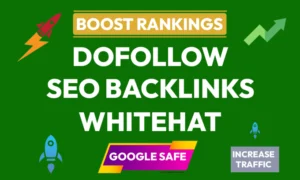What are Keywords in Digital Marketing?
When it comes to digital marketing, one of the most important concepts to understand is “keywords.” Whether you’re running ads, optimizing your website for search engines, or creating blog content, keywords are the foundation of your online visibility. If you are confused about What are Keywords in Digital Marketing? Simply, keywords are the words or phrases people type into search engines like Google when they’re looking for something.
For example, if someone searches for “best digital marketing course in Dehradun,” then that entire phrase is a keyword. Businesses use these keywords to connect their content with the right audience. Understanding and using keywords correctly can significantly boost your website traffic, improve your search rankings, and increase conversions.
Why Are Keywords Important in Digital Marketing?
Keywords are the bridge between what people are searching for and the content you are offering. If your content aligns with the keywords that users type into Google, your chances of ranking higher increase drastically.
Here’s why keywords matter:
- Search Engine Optimization (SEO): Keywords help search engines understand your website’s content and rank it appropriately.
- Content Creation: They guide what topics you should write about and how to structure your content.
- Advertising: Keywords determine who sees your ads, how much you pay per click, and how relevant your ad is to the user’s intent.
- User Intent: Understanding keywords helps you decode what your audience really wants — information, a product, or a solution.
Simply put, keywords are at the heart of every successful digital marketing campaign.
Types of Keywords in Digital Marketing
There are several types of keywords used in SEO and PPC advertising. Each serves a unique purpose and helps target audiences more effectively.
1. Short-Tail Keywords
Short-tail keywords are one to two words long and have a high search volume. For example, “digital marketing” or “SEO.”
These keywords are competitive and broad in meaning. They bring traffic but often lack specific intent. Ranking for them is difficult for new websites.
2. Long-Tail Keywords
Now, you might wonder: What are long tail keywords?
Long-tail keywords are specific keyword phrases that usually contain three or more words. For example, “best digital marketing course in Dehradun” or “affordable SEO services for small businesses.”
These keywords are more targeted and have lower competition but higher conversion rates. They help attract users who are closer to making a decision. If you’re a beginner or a small business, focusing on long-tail keywords can help you rank faster and attract the right audience.
What Are LSI Keywords?
LSI stands for Latent Semantic Indexing. LSI keywords are semantically related terms that help search engines understand your content contextually.
For example, if your main keyword is “digital marketing,” then LSI keywords could be “SEO,” “content marketing,” “online advertising,” or “social media strategy.”
Including LSI keywords in your article doesn’t just help with SEO — it also makes your content more natural and comprehensive. Google uses these related terms to decide how relevant and authoritative your page is.
What Are Negative Keywords?
Negative keywords are mainly used in Google Ads (PPC campaigns). They prevent your ads from being shown to irrelevant audiences.
For example, if you’re running ads for “paid digital marketing courses,” you might want to add “free” as a negative keyword. This way, your ad won’t appear when people search for “free digital marketing courses.”
Using negative keywords helps you:
- Avoid wasting money on irrelevant clicks.
- Improve ad performance and click-through rates.
- Target the right users who are genuinely interested in your offer.
What Are Keywords in an Article?
When we talk about keywords in an article, we refer to the words or phrases you strategically include in your content to improve its visibility in search results.
Here’s how to use them effectively:
- Include your primary keyword in the title, first paragraph, and headings.
- Add secondary and LSI keywords naturally throughout the article.
- Avoid keyword stuffing — overusing the same keyword repeatedly.
- Focus on creating valuable and readable content that answers user intent.
Google’s algorithms now prioritize high-quality, user-friendly content. So, keywords should fit naturally, making your writing sound authentic and helpful.
How to Find the Right Keywords for Digital Marketing
Finding the right keywords starts with understanding your audience. Here’s a step-by-step approach:
- Use Keyword Research Tools: Tools like Google Keyword Planner, Ahrefs, SEMrush, and Ubersuggest help identify keyword opportunities.
- Analyze Search Intent: Determine whether users want information, products, or services.
- Check Search Volume and Competition: Balance between high search volume and low competition.
- Use Long-Tail Keywords: Target specific queries to attract ready-to-convert traffic.
- Monitor Trends: Stay updated with changing search behaviors using Google Trends.
Best Practices for Using Keywords
Here are a few golden rules for keyword optimization:
- Use your main keyword in the URL, title tag, and meta description.
- Maintain a natural keyword density (around 1-2%) to avoid penalties.
- Optimize image alt texts with relevant keywords.
- Add internal links with keyword-rich anchor texts.
- Keep updating your content to match new search trends.
Remember, keywords are not just about ranking — they’re about connecting with your audience’s needs at the right time.
The Future of Keywords in Digital Marketing
With AI and voice search growing, the future of keywords is evolving. People no longer type robotic phrases; they speak naturally. That means conversational keywords and semantic search are becoming more important.
For instance, instead of typing “digital marketing course Dehradun,” users now ask, “What’s the best place to learn digital marketing in Dehradun?”
Marketers need to optimize for search intent, user behavior, and contextual relevance. Understanding how people speak and search will define keyword success in the next generation of SEO.
Conclusion
Keywords are the backbone of digital marketing. They help search engines understand your content and connect you with the right audience. From long-tail keywords that drive conversions to negative keywords that filter out unqualified traffic, every keyword type plays a unique role in your online success.
If you want your website, ads, or blogs to perform better, start by mastering keyword research and placement. Remember — keywords are not just words; they are the language of your customers. Learn it, use it wisely, and your digital presence will thrive.
10 Frequently Asked Questions (FAQs)
1. What are keywords in simple words?
Keywords are words or phrases people type into search engines to find information, products, or services.
2. Why are keywords important in SEO?
Keywords help search engines understand your page content and connect it with users searching for similar topics.
3. What are long-tail keywords?
Long-tail keywords are longer, more specific phrases that attract targeted traffic with lower competition.
4. What are LSI keywords?
LSI (Latent Semantic Indexing) keywords are related terms that give context to your main keyword, helping search engines understand your content better.
5. What are meta keywords?
Meta keywords are HTML tags used to describe a webpage’s topic, though they no longer influence Google’s rankings.
6. What are negative keywords in Google Ads?
Negative keywords prevent your ads from showing to users who search for irrelevant or unwanted terms.
7. How many keywords should I use in one article?
There’s no fixed number, but ideally 1 primary keyword and 3–5 secondary or LSI keywords work best for readability and SEO.
8. How do I find the best keywords for my business?
Use tools like Google Keyword Planner, Ahrefs, or SEMrush to research relevant keywords with good search volume and low competition.
9. Should I use the same keyword multiple times?
Yes, but in moderation. Use variations and synonyms to maintain natural flow and avoid keyword stuffing.
10. Are keywords still important in 2025?
Absolutely! While search algorithms are smarter now, keywords still play a crucial role in connecting your content with the right audience.




